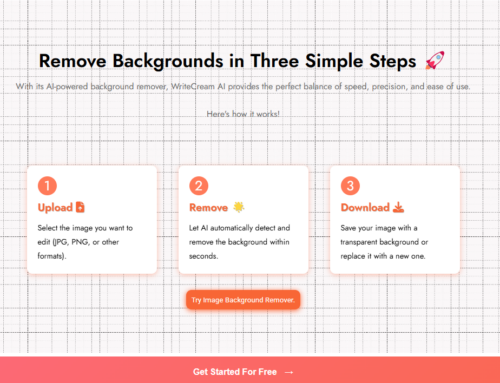Structured data was never more applicable and useful than it is right now, with an increasing number of consumers flocking to mobile devices to acquire their daily dose of information.
Rich snippets from your site appearing on Google’s search engine’s home page can be considered the pinnacle of SEO optimization, therefore it’s not just a terrific benefit for consumers of the internet but also for website owners.
The main drawback to this is that, despite seeming fancy, execution can be laborious and time-consuming if you don’t have the necessary instruments.
In this article, we’ll go over the best schema mark up generators in 2022:
1. Schema Pro
Schema Pro is the go-to tool for integrating schema markup and displaying rich snippets from your website in Google’s search results. Schema Pro is simple to use and has a robust range of capabilities, including the capability to support 13 distinct types of schema.
Including:
- Review
- Local Business
- Article
- Service
- Product
- Course
- Recipe
- Person
- Job Posting
- Software Application
- Book
- Event
- Video Object
Ensuring that you have the tools necessary to add any schema you require when you require it.
Additionally, adding schema markup is automated in Schema Pro. There’s no need to add one to every item or page you wish.
All the settings and parameters you enter are automatically applied to all appropriate posts and pages after the initial rollout.
Some more features are:
- JSON-LD Support
- Custom fields support
- Very easy to use
- Excellent support
Schema Pro is industry-leading and is endorsed by various well-known WordPress devs and enthusiasts, like Akshay Hallur of bloggingx.com, digitalnrg.co.uk, Ogalweb.com, and many others.
Schema Pro is likewise very reasonably priced, with a lifetime licence costing $249 and a plugin-only annual price of $55. Or you could get the Growth Bundle, which includes it and our other services, for $699 for a lifetime licence and $249 per year.
2. Google’s Structured Data Markup Helper and Data Highlighter
Google won’t leave us in the darkness without its own tool to add structured data, of course, as they are the largest search engine to employ and advocate the usage of structured data or schema.
In order to enable website owners and programmers to add their own schema to their websites, Google offers two tools that are extremely comparable to each other, albeit in a more involved manner than utilising a plugin.
This tool enables you to add several types of structured data to your site and tags pertinent areas of your page with the appropriate schema.
Following completion, choose output and quickly copy or upload the code to your site.
The Data Highlighter Tool is a similar but simpler tool provided by Google.
When your websites are integrated into Google’s Search Console and you have admin rights to them, you can go straight to the Data Highlighter Tool and begin tagging your structured data.
Because Google can automatically identify similar pieces of information on your page and classify them appropriately, the second alternative is simpler to use. This makes it much simpler to implement changes globally. Utilizing Google’s own tools has the huge benefit of being cost-free.
3. Schema Markup Generator by Merkle
You may probably infer what this tool does from its name.
This fantastic and simple schema markup generator takes the hassle off of having to code things yourself.
You can select the kind of schema you wish to develop from a wide range of possibilities offered by them, including:
- Job postings
- Articles
- Breadcrumb navigation
- Local business
- Product information
- People
- Website information
- Recipes
- Events
All you have to do is choose the kind of schema you would like to add and enter the necessary data. It’s that easy.
To comply with Google’s requirements, this tool also produces output in JSON-LD format. You are not, however, constrained to that. In case you ever require it, they can also output microdata.
When you’re finished, simply copy and paste the code into the relevant areas of your website. To accomplish this, you might need to use FTP if you use WordPress.
4. MicrodataGenerator.com’s Schema.org Generator
Don’t be duped by the straightforward UI and simple name. If you wish to add a schema to your website, you can still utilise this tool.
Although the title suggests it outputs in microformats, it also outputs in JSON-LD format to keep pace with the times, so it’s wise to be aware of that.
It’s easy; all you have to do is decide what kind of business you run and enter the necessary data.
The required code is then produced by this tool in JSON-LD format.
You can choose from a huge selection of company or schema kinds with this totally free application.
5. JSON-LD Generator by Hall Analysis
This tool is a relatively slimmed-down version of the others that we’ve included below. It won’t have the flashy bells and whistles of the other tools, but it will undoubtedly assist you in getting the job done.
Simply choose the kind of schema you wish to use and add the required tags to get started.
Your options include:
- Local business
- Person
- Product
- Event
- Organization
- Website
You’ll receive a JSON-LD format output script to copy and paste onto your website after adding the URL and required tags.
You can add schema to your site without spending extra money because this tool is likewise free to use.
Conclusion
Making use of schema markup is another technique to strengthen your company. Learn how to leverage schema rather than worrying about what to write about to advertise your cleaning service company.
Using one of the top 5 schema markup generators is just the first step toward maximising what schema can achieve for your cleaning service site, so keep that in mind as well.


